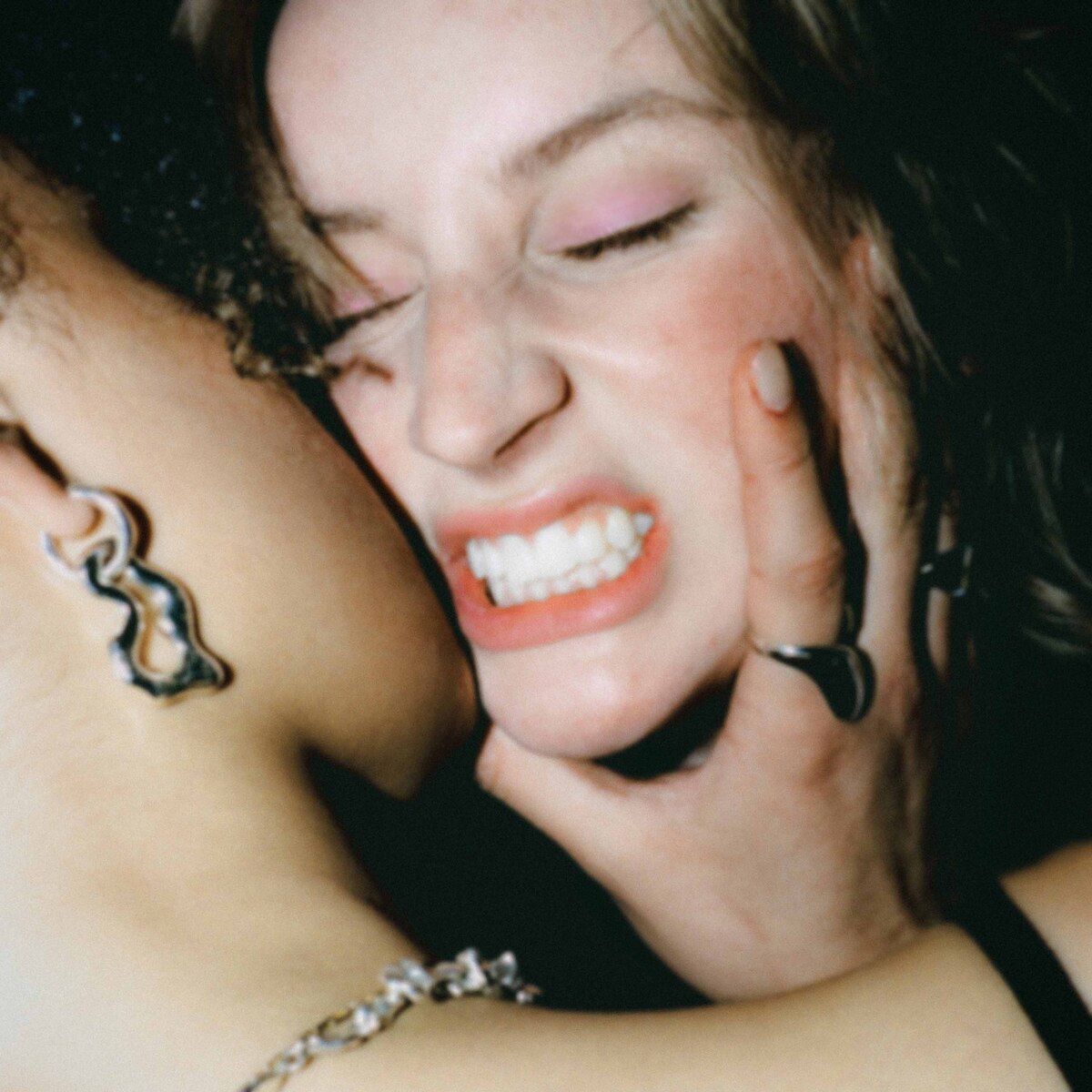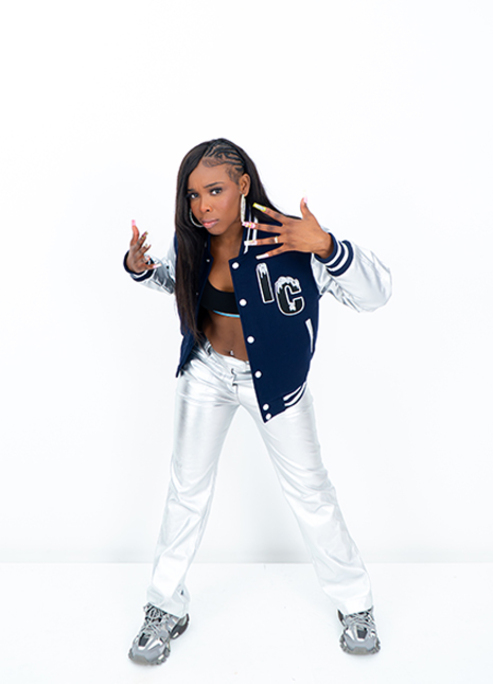The Making of 'Hate Me for This': Emily Bowen's Debut Album
Exploring the raw emotions of 'Hate Me for This'
‘Hate Me for This’ is a multifaceted, organic, indie pop album steeped in the young Danish-American artist’s lived life - written along the way, like a diary containing pages of confessions, truths, pain, laughter, humor and an honest, vulnerable openness to all the first-time experiences of life.
As Emily Bowen sits down with us, she brings that same openness to the conversation. Here are highlights from our interview, where she shares the stories, insights, and emotions that shaped her debut album.
Emily, your album 'Hate Me for This' feels like a diary filled with life’s rawest moments. Was there a particular entry or memory that made you realize this album was ready to come to life as a complete project?
Thank you! It makes me proud when people experience it in that way. Intimate, and vulnerable. I named the album Hate Me for This in relation to a very specific moment I had during the process. Rasmus, my long-time collaborator, and I were taking two weeks in the studio to hang out and see what we could come up with. We weren’t in a huge rush to define a body of work from what songs we had made so far, since I was still experimenting. The first week was great but my gut was telling me there were deeper emotions I hadn’t found the tools to tap into. I was so frustrated about it that one night I plopped right onto my bedroom floor and wrote down exactly what I was struggling with. None of me was concerned with it being poetic or correct. I basically wrote down the story of one of my first attempts at romantic relationships. Next day I just sang it into the mic as I had written it. Once we tweaked the delivery a bit, we knew it had unlocked something really special. Long story short, that song has helped define not only the album but me as a writer.
Your story of turning a home office into a studio and knocking on studio doors at just 14 shows incredible drive. When you think back to those moments, how do they shape the artist you are today?
Looking back, I think there’s something beautiful about that kind of fearless pursuit, even if it was unpolished or a bit idealistic. Knowing that the incredible experiences I’m having are the fruits of what my younger self dared to achieve, reminds me to create my own opportunities. I learned that rejection is part of growth, but so is finding the courage to ask for what you want. I often think, if I got this far with just what I had then, imagine what I can do with all I have now.
You describe "Honey" as initially inspired by a friend but ultimately pointing back to you. What’s the process like when a song takes on a new meaning during its creation?
I can only imagine, but I tend to compare it to having a child. When you start writing, you imagine the song as one thing—but as it develops, it often surprises you by becoming something else, usually something better. This process is humbling because it teaches you to let go of control and allow the song to reveal its true self. Like raising a child, the creation of a song is a reciprocal journey; it shapes me as much as I shape it. That’s why the meaning often evolves—it reflects the growth and discovery we experience together. Of course, every song is different, but they always find their own purpose.
The track "Agnes" sounds deeply personal yet universal in its themes of fleeting connections. How do you approach turning such intimate moments into music that resonates with a wide audience?
I’ve heard many writers discuss how specific you can be with lyrics before risking alienating the listener. In those discussions, I can’t help but turn to some of my favorite artists and the traditions in folk music that I’ve grown up with. For example, I have such genuine admiration for Adrienne Lenker of Big Thief. Her writing has this incredible ability to transport me directly into the exact circumstance she’s describing, there with her. And yet, despite the specificity of her imagery, I always feel deeply seen and understood within my own unique place in life.
That kind of connection inspires me to believe that if I speak my truth—honestly and without compromise—people will find the universal meaning behind it. I don’t see specificity as a barrier; I see it as an invitation for listeners to overlay their own experiences onto the story I’m telling. While "Agnes" tells a unique story, it might become a mirror for someone else’s emotions.

You’ve spoken about balancing your enormous drive with the need to keep up as a human being. How do you create space for yourself amid the demands of music and creativity?
It’s an ongoing process for sure. I honestly can’t remember a time in my life when I wasn’t this driven. So much of my childhood and teenage years were spent in my bedroom writing music, practicing instruments, or creating vision boards—a gross amount of vision boards. Music has always been my safe space, sometimes the only place where I found peace. Over time, though, I’ve realized that while it’s been a lifeline, even something you love can become too much when it’s your entire world.
Part of maturing for me has been learning how to find balance. I’ve had to teach myself to recognize when it’s time to step away and embrace other aspects of life. I’ve come to understand that I’m at my creative best when I’ve allowed myself to rest, to connect with others in meaningful ways, and to gather real, lived experiences. Those moments outside the studio recharge me and bring an authenticity to my songs that I just can’t fabricate when I’m running on empty.
The album explores such a variety of sounds, from the nostalgic folk-pop of "Better Days" to the harder energy of "Room 17." How did you ensure these diverse styles still felt cohesive as part of one project?
Hate Me for This was written during the most transformative years of my life, and I think the changing styles reflect those changes. Despite that, I’ve always felt connected to a core part of myself. I leaned on recurring elements—melodic motifs, lyrical imagery, and a sense of intimacy—to keep that core present throughout the project. I also just love music—all kinds of it—and I’m lucky to have had a collaborator who thinks outside the box with me.
Humor and self-irony play a big role in your lyrics. Is there a particular line or moment on the album that you feel captures that balance between vulnerability and wit?
Opening the album with "Talk About" was a very conscious decision. I love the irony of starting with "I don’t wanna talk about it" and then proceeding to gab on for eight more songs. I think it acknowledges the messiness of my emotions while not taking myself too seriously.
Meeting "Agnes" while backpacking feels like a serendipitous spark for creativity. Do travel and new experiences often inspire your songwriting, or was this a unique case?
Meeting new people, more so than traveling, often sparks something that finds its way into my songs. I spend a lot of brainpower thinking about my connections with other people.
Hate Me for This navigates themes of loneliness, empathy, and self-reflection. If you could play one track for someone meeting Emily Bowen for the first time, which one would it be and why?
That’s so difficult! I love that the songs show different aspects of me! Depending on who I’m meeting, I might feel differently about my answer. If I have a crush on someone, "Be Your Man," because I think it’s a badass song with my sense of humor. But if there’s a song that speaks most to my heart, it’s "Better Days." It’s about my first love, capturing something quite innocent and pure.
As you prepare to share this album with the world, what’s the one message or feeling you hope listeners take away after hearing Hate Me for This?
I hope the album feels like relief—like a safe space where listeners can connect with their own truths without pretense or shame. There’s power in standing by your experiences and gut feelings. When the album is over, I hope it feels like a hug of understanding—a comforting reminder that we’re not alone in our experiences.
Thank you Emily, for giving us such an intimate glimpse into your artistry and the journey behind Hate Me for This.
Follow Emily Bowen on Instagram.com @emilybowennn to stay updated, and stream her music on Spotify.












